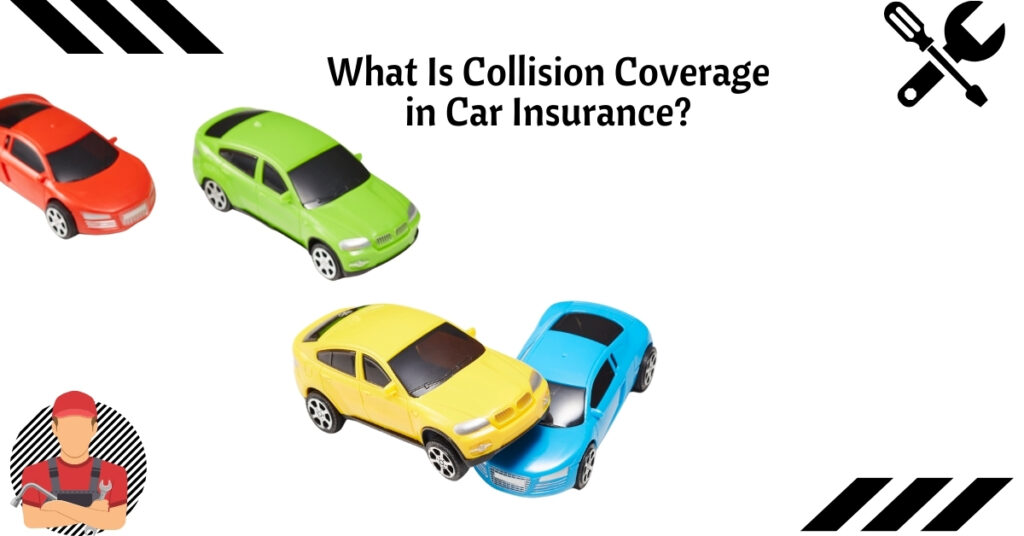What Is Collision Coverage
Collision coverage is a crucial aspect of auto insurance that helps protect your vehicle in the event of a crash, regardless of who is at fault. In simple terms, it pays for damages to your car if it collides with another vehicle or object, such as a tree, fence, or even a pothole. This coverage is optional, but in many cases, it can provide significant peace of mind by covering the repair or replacement costs of your car.
When considering your car insurance policy, collision coverage can be a critical factor, especially for those who own new or valuable vehicles. Understanding how this coverage works, what it covers, and whether it’s necessary for you can help ensure that you’re making the right choice in protecting your car and finances.
How Collision Coverage Works
Collision coverage works by reimbursing you for damages to your vehicle after an accident. Whether you’re at fault or not, this insurance helps cover the repair or replacement costs up to the actual cash value (ACV) of your vehicle. It’s designed to ensure that you’re financially protected when you’re involved in an accident that results in damages to your car.
When you file a collision claim, the insurance company will send an adjuster to assess the damage. After determining the cost to repair the vehicle, they’ll subtract any deductible that applies, and the remaining amount will be covered by your collision insurance policy. However, keep in mind that collision coverage doesn’t pay for injuries to you or passengers; that’s typically covered under personal injury protection (PIP) or medical payments (MedPay) coverage.
What Does Collision Insurance Cover?
Collision insurance covers a range of incidents that involve your car being damaged in an accident. Some of the most common situations include:
- Colliding with another car: Whether you crash into another vehicle or are rear-ended, collision coverage will help pay for repairs to your car.
- Hitting an object: If you crash into a fence, tree, or a guardrail, your collision coverage will help pay for the damage.
- Rolling your vehicle: If your car flips over during an accident, collision coverage will assist with repairs.
- Single-vehicle accidents: If you hit a pole, pothole, or another object without any other vehicles involved, collision coverage will also step in.
Is Collision Coverage Necessary for You?
Collision coverage is not mandatory by law, but it is recommended under certain circumstances. Here’s a breakdown of when it makes sense to have collision coverage:
- New cars: If your car is new or has a high value, collision coverage is essential as the repair or replacement costs could be expensive.
- Leased or financed cars: Many lenders and leasing companies require collision coverage as part of your contract, ensuring that their investment in your car is protected.
- High-risk drivers: If you’re considered a high-risk driver or live in an area with frequent accidents, collision coverage can help provide extra protection.
- Older cars: If your vehicle is older and its value has significantly decreased, collision coverage may not be necessary, as the cost of repairs might exceed the car’s worth.

Key Benefits of Collision Coverage
There are several key benefits to having collision coverage as part of your car insurance policy:
- Financial protection: Collision coverage helps protect your car from expensive repair costs after an accident.
- Peace of mind: Knowing that you’re covered in the event of a crash gives you peace of mind while driving.
- Protection against costly repairs: Especially for newer vehicles, the cost of repairs can be high, and collision coverage ensures you’re not financially burdened by this expense.
- No-fault coverage: Whether you’re at fault or not, collision coverage ensures that you won’t have to pay out of pocket for your vehicle’s damage.
Factors Affecting the Cost of Collision Coverage
Several factors determine the price you’ll pay for collision coverage:
- Type of car: More expensive cars or luxury vehicles generally have higher repair costs, which increases the premium for collision coverage.
- Deductible amount: The deductible is the amount you pay out of pocket before your insurance kicks in. The higher the deductible, the lower your premium.
- Driving history: If you have a history of accidents or traffic violations, your premium for collision coverage may be higher.
- Location: The area where you live can also impact the cost of your collision coverage. For example, urban areas with higher traffic volumes often see more accidents, leading to higher premiums.
Is Collision Coverage Worth the Expense?
Determining whether collision coverage is worth the expense depends on several factors, such as the value of your car, your driving habits, and your financial situation. Consider the following:
- Your car’s value: If your car is worth a significant amount, the cost of collision coverage is generally worth the expense to protect against potential damage.
- Your financial ability to repair or replace your car: If you could afford to pay for repairs out of pocket, you might opt to skip collision coverage. However, if repairs could be financially burdensome, having collision coverage becomes more valuable.
- Risk of accidents: If you drive frequently or in high-traffic areas, the likelihood of being involved in an accident increases, making collision coverage a worthwhile investment.
Collision Coverage Deductibles and Limits
- Deductibles: This is the amount you pay out of pocket before your insurance covers the rest. Common deductible amounts range from $250 to $1,000. A higher deductible typically results in lower premiums, but it means you’ll pay more out of pocket in case of an accident.
- Limits: The limit refers to the maximum amount your insurer will pay for repairs or replacement. This amount is usually based on the actual cash value (ACV) of your car, which takes into account depreciation.
Alternatives to Collision Coverage
If collision coverage isn’t suitable for your needs, there are alternatives you might want to consider:
- Comprehensive coverage: This type of insurance covers damages to your vehicle that aren’t caused by a collision, such as theft, vandalism, or weather-related damage.
- Liability coverage: If you’re looking to lower your premiums, liability insurance is the minimum required by law in most states. However, it only covers damages to other drivers and their property, not your own vehicle.
Common Myths About Collision Coverage
- Collision coverage covers everything: It’s important to remember that collision coverage only applies to physical damage to your car in the event of a crash, not injuries or damage to other people’s property.
- It’s only for new cars: While collision coverage is important for new cars, older cars can also benefit from it, especially if the cost to repair the car is high.
- It’s always expensive: The cost of collision coverage depends on factors like the car’s value, your deductible, and driving record, so it’s not always expensive.
Comprehensive vs. Collision Coverage: What’s the Difference?
| Coverage Type | What It Covers | Cost Comparison |
| Collision Coverage | Damage to your car after an accident | Higher cost for newer cars |
| Comprehensive Coverage | Non-collision-related incidents like theft, weather damage, vandalism | Typically more affordable for older cars |
Can I Add Collision Coverage After an Accident?
If you’ve already been in an accident and are considering adding collision coverage, it’s important to note that the insurance won’t cover the damages from that accident. Collision coverage typically only applies to incidents that occur after the policy has been in effect.
FAQ
Does collision insurance cover theft?
No, collision insurance does not cover theft. Theft is typically covered under comprehensive coverage, which protects against non-collision-related incidents.
Does collision insurance cover rental car accidents?
Yes, if you have collision coverage, it may cover damages to a rental car. However, it’s always a good idea to check with your insurance provider about the specifics of rental car coverage.
Is collision insurance necessary for an old car?
For an older car, collision coverage may not be necessary if the car’s value is low. The cost of repair might exceed the value of the car, making it less economical to carry collision coverage.
Is collision insurance mandatory?
No, collision insurance is not mandatory by law. However, if you’re leasing or financing your car, the lender may require it to protect their investment.

